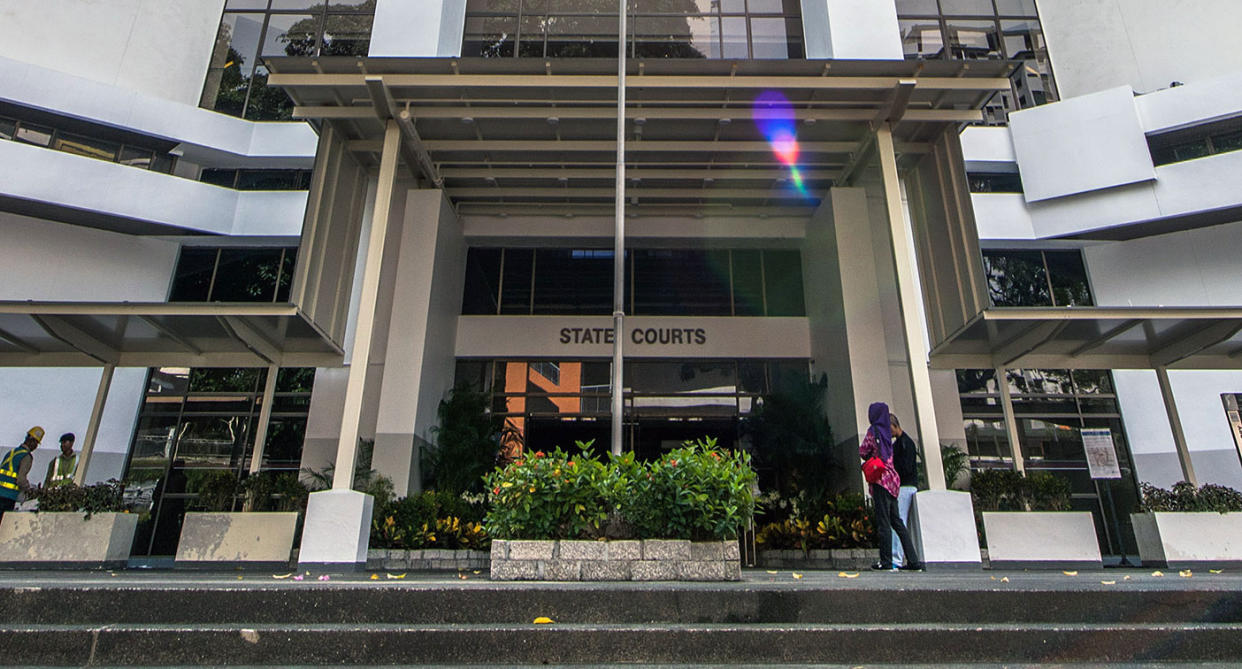Boy who died in shower was electrocuted due to faulty electrical installations: Coroner's Court

A 15-year-old boy who died following a shower in his flat in Bukit Batok had been electrocuted due to faulty electrical installations and these tasks were done by workers who were not licensed to carry them out, according to the Coroner’s Court.
The installations were done as part of the Home Improvement Programme (HIP) upgrading project carried out by the Housing Development Board (HDB) on 11 flats in Bukit Batok East Avenue 5, including Tan Yao Bin’s block. The upgrading works in his flat took place between 29 September and 9 October 2015, according to the coroner’s findings delivered on Wednesday (17 October).
Yao Bin, the youngest of three boys, was electrocuted on 29 November 2016 while he was having a shower about half an hour after his eldest brother had showered in the same toilet.
The brother, then 21 years old, heard Yao Bin shouting at around 8.05pm and forced open the toilet door when Yao Bin failed to respond to his call.
He found Yao Bin naked on the floor with his body facing up. He touched Yao Bin’s body and felt an electric shock that prevented him from removing his hand. The brother then called out for help. When Yao Bin’s father came and turned off the switch to the water heater, the brother no longer felt the electric current.
A paramedic who arrived at the scene at 8.15pm placed a defibrillator pad on Yao Bin and found that the boy’s heart had no electrical activity. She performed cardiopulmonary resuscitation on Yao Bin, who was then conveyed to Ng Teng Fong General Hospital.
Yao Bin, who had burn marks on his left palm, was pronounced dead at 9.32pm.
On Wednesday, State Coroner (SC) Kamala Ponnampalam ruled Yao Bin’s death as an “unfortunate misadventure” .
“The water heater was improperly connected to the plug which was not rated to withstand the current drawn by the heater,” said the SC.
“This led to the earth and neutral cables shorting, which in turn caused a current to be diverted through… Tan’s body, electrocuting him. At the same time the RCCB (Residual Current Circuit Breaker) unit was faulty and did not operate to trip off to isolate the electricity supply to the water heater.”
The accident occurred more than a year after the HIP works were carried out. During the HIP works, Yao Bin’s mother asked for a sub-contractor to install a new water heater. HDB had engaged Precise Development as the main contractor of the HIP project, while JL Engineering Construction was engaged as an electrical sub-contractor.
A worker from JL installed the water heater under the direction of his supervisor Ooi Kah Heong, who was the construction site supervisor for several blocks undergoing the HIP.
Ooi supervised the dismantling of the wiring and rewiring in the toilets of flats. He would also conduct checks to see if the RCCB unit – a safety device to prevent electric shocks – would trip.
However, the SC found that even though Ooi was experienced and knowledgeable in electrical works, he was not a licensed electric worker.
During the hearing into Yao Bin’s death, Ooi testified that he knew water heaters were not supposed to be wired to three-pin plugs, as these plugs only supported currents of up to 13A whereas water heaters draw currents of up to 20A.
However, he wired the water heater to a three-pin plug as he was tasked to reinstate the former wire configuration of the toilet. The previous configuration included a three-pin plug.
He said that he would typically inform the owner of a unit undergoing HIP that a three-pin plug setting was unsafe for a water heater and offer to change it. But he did not meet any of the Tan family members to advise them on the matter.
According to Ooi, nearly 75 per cent of the units undergoing HIP that were overseen by him had water heaters connected to three-pin plugs.
Liew Cheng Huak, JL’s director, said that HDB had directed the contractor to reinstate any original wiring and affected appliances for the project. Liew was aware that water heaters should not be connected to three-pin plugs.
Following the incident, the Energy Market Authority conducted investigations and found that both the switch socket outlet and the safety device were faulty.
The outlet’s cable connection to the neutral and earth terminals were loose. The earth cable was connected to the casing of the heating tank, which was connected to the shower head by a metallic hose.
“As the cable connection to both the neutral and earth terminals were loose, the current could have flowed back to the heating tank of the water heater instead,” the SC said.
“The current would then have completed its path by flowing into the casing of the heating tank (in the water heater), through the metallic hose and into… Tan’s body and finally to the wet ground.”
The current flowing through Yao Bin’s hand that was holding the hose was 0.95A, which was enough to deliver a fatal electric shock, the SC noted.
Since the tragedy, the HDB has informed its contractors to issue a written advisory note to residents who have water heaters connected to three-pin plugs. The note advised affected residents to engage a contractor to carry out rewiring.
Speaking to Yahoo News Singapore outside of court, Yao Bin’s eldest brother said that his mother felt the people who did the HIP works “didn’t do their due part”. His mother did not notice Ooi’s presence during the period that he was supposed to supervise the electrical works.
Noting that Ooi was not licensed to carry out the electrical works, the brother, now 23, added that the family is exploring avenues of legal action.



